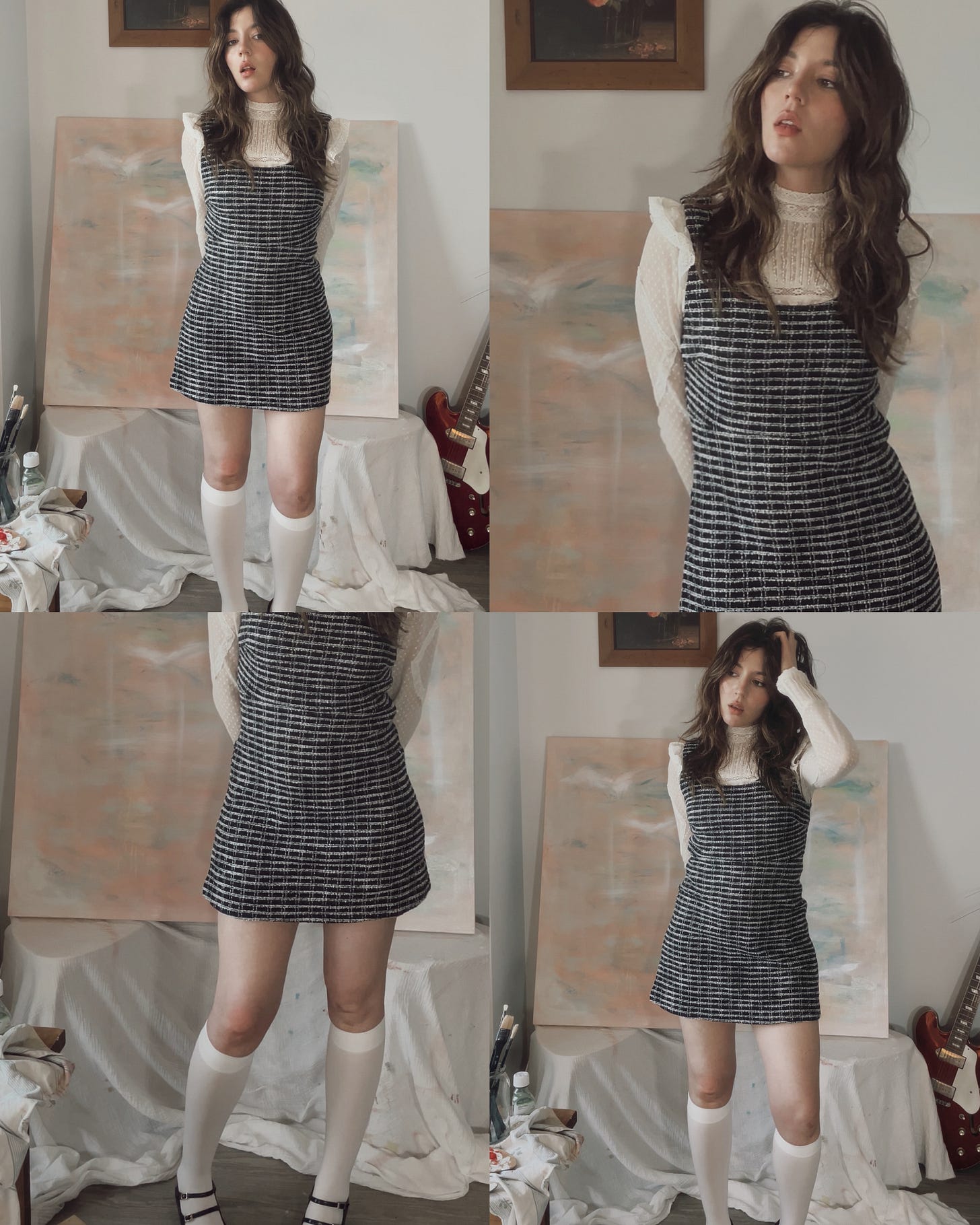
When I arrive at the doctor’s office, a shared wellness studio with minimal, grey decor in the heart of Mayfair, I’m greeted by a pretty girl with impossible lashes and visibly injected lips. Her fake tan is pilling slightly under her make up, making the lines on her forehead look like odd marks on a blank page. Something about her voice, the childlike, inquisitive inflection of it, makes me almost want to tell her that I find her beauty greater than its parts, that it doesn’t need accessories, but I immediately realise how hypocritical it would sound.
She looks at me with suspicion, probably sensing what I already know, that I don’t belong there, as I explain that no, I’m not here to use the gym, that I had booked a consultation with the doctor, and am I late for it? I repeat my name and go through the familiar motions of making something foreign sound effortless, “it’s Marianna, two n’s, no middle name”.
It’s March and winter has just begun its descent into spring, the day a thin veil of golden mist the life outside this grey room I’m in gets filtered through. I watch it unfold from the glass door in front of me as I sit on a couch that feels too stiff and think of a good excuse to get out of here.
Another young woman is sitting next to me, I realise only now, and she asks if I’m waiting to see the cosmetic doctor too. She wants to know what kind of filler I had on my lips, “it looks so natural,” she says. I smile through the synthetic scent of her perfume, which is so overpowering it almost feels physical, like a punch or a push, and tell her I never had any, that this is my first consultation of this kind, and I confess that I’m not really sure why I’m here in the first place, that I was actually just thinking of leaving. She breaks into a gorgeous laugh and points at the dent in her left cheek, a sign of an infection from her last filler. She tells me how it didn’t stop her from wanting more, although she wishes it did, and I think of something clever to say but nothing comes, so we both stare at our phones now, a sadness between us. To be so dependent on something that you can’t imagine a happiness without it: isn’t that what addiction does?
When the doctor comes to fetch me and takes me to her office, she scans my face with her eyes and asks if I ever had anything done because, she adds, she doesn’t think I need anything. I’m sure she’s picked up on my indecisiveness, because she goes on about how pretty she thinks I am, how a filler would look unnatural on me, and says that maybe, if I really wanted, she could add a little “something” here and there, “but do I really need it?” She does suggest, however, that I see a dentist because my clenching is so bad that it’s shifting my jaw and making the line of my mouth sit aslant on my face, which I find remarkable because it’s something I had discussed with my dentist before, but then decided I didn’t care enough to act on it.
I thank her with genuine gratitude and leave the building with a sense of relief mixed with shame for even stepping into it in the first place, for becoming someone I don’t recognise, whose values are not my values, not because there’s something wrong with plastic surgery and the sense of confidence it can restore, but because I don’t want to belong to a class of people who take their privilege for granted, who spend too much time thinking about their external beauty or lack thereof, who get into any store and don’t feel a special pain as they take in the overwhelming choice of options available. I want to remember the cost of my options and how unfairly the bulk of it falls on those less fortunate than me. I want to make my life not an art but a political act because there’s no I without others. Or at least that’s what I thought to be true about myself.
If I were to explain why getting my face injected with chemicals seemed like a good idea for a moment, I’d tell you that my mother had died only five months before and people are not themselves when they’re grieving, or so they say. But maybe pain and grief, the very texture of life, makes us more like ourselves instead, like a spotlight shined upon the multitudes we contain.
In his One, No One and One Hundred Thousand, Luigi Pirandello poses the question of identity and how precarious it becomes when it relies on the shifting perceptions of those around us. The novel follows a man, Moscarda, whose sense of reality gets upended one morning when his wife casually informs him that his nose tilts to the right, finding himself simultaneously without a self and the theatre for many selves.
It doesn’t end well (or maybe it does, depending on what you believe to be true), which is why it pains me to admit that I find myself facing the same struggle. Sometimes, as I fantasise about a life away from the city, the very life I chose for myself because of its communal quality, or reach for the red lipstick instead of the usual colourless lip balm, I wonder if my values perhaps have shifted or if I’m just growing into myself, this person I happen to be, which is a thing made of contraries and contradictions, like an image reflected in a broken mirror.
Like someone who’s one, no one, and every other.




